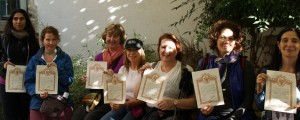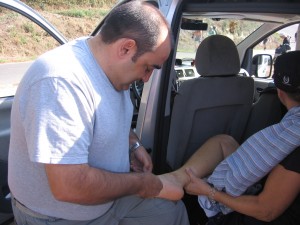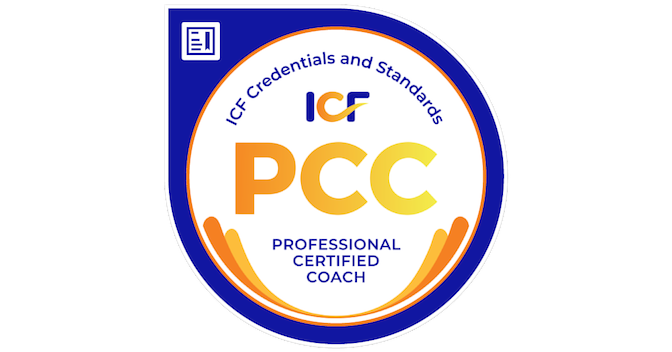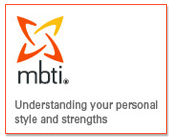Latest Blog Posts
What are you most afraid of right now?
 Not knowing where you’re headed?
Not knowing where you’re headed?
That you’ll make a mistake?
That someone will judge you?
That you only get one chance in life so you’d better get it right?
That no one will understand your choice and you’ll be all alone?
That you’re not smart enough?
That there’s no way you can make money doing what you love?
That you can’t possibly learn all you need to know to be successful?
That you’ll never, ever accomplish everything on the to-do list?
That this is all there is?
How will you use this fear today, right now, to help you?
Will you admit you’re scared?
Will you ask for help?
Will you try to figure out what this fear is here to teach you?
Will you do one thing, just one thing, differently than you’ve done it before?
Will you take one ridiculously small step to see what happens next, despite the fear?
Will you take a breath and then another, and then another to be still and listen?
Or will you spend today doing the same things that got you here?
It’s up to you.
 I’m hearing this phrase a lot lately. It’s a response that’s lobbed at me when I ask questions about why someone stays in an icky relationship, a toxic job, a home that’s too big, and in other unsustainable situations. We sure do like to complicate things.
I’m hearing this phrase a lot lately. It’s a response that’s lobbed at me when I ask questions about why someone stays in an icky relationship, a toxic job, a home that’s too big, and in other unsustainable situations. We sure do like to complicate things.
Well, maybe not all of us. Have you ever heard a four year old use this phrase? Didn’t think so. For them, life’s a lot more straightforward.
What is it about aging that adds a lot more gray to our lives (and not only on the top of our heads)? Is life really that much more complicated? Sure, I get that we have mortgages, tuition, taxes, aging parents, etc. to worry about, but we often make things harder than they have to be.
If you’re feeling the complications of your life, ask yourself these questions:
- What’s the simplest solution here?
- What stories am I telling myself about why this situation can’t change? Are they true?
- If I wasn’t worried about what others thought, what action would I take?
- How would I handle this looking through the eyes of a four year old, but with the resources of an adult?
- What’s one step I could take to simplify this situation?
Then, make one change to “uncomplicate.”
No excuses. Just do it.
Stuck? Call me.
My friend Karen posted this on Facebook recently: “Fear knocked on the door. Love answered. No one was there.” Although I’m not a big Bible reader, I remember a passage similar to Karen’s post about perfect love casting out all fear.
When I’m afraid, I do three things:
- focus on my breathing, noticing each long inhale and each longer exhale,
- question the thoughts that have got me frightened – can I be absolutely sure the plane’s going to go down, there will never be enough money, people will think I’m an idiot for making this choice, etc.?, and
- focus on someone or something I love, eliciting the sensations by remembering the sounds, taste, touch, smell and sight of the person, place or thing so that I’m truly in a state of appreciation.
When I breathe deeply, I become calmer. From that calmer place, I can examine the thinking that created the fear. And, when I remember love, fear doesn’t stand a chance.
When you’re in a state of F.E.A.R. (i.e., False Evidence Appearing Real), breathe deeply, ask questions, focus on love, and see if things don’t get better for you, too.
 I was desperate for a good night’s sleep. Three nights of tossing and turning made me really, really grouchy. After sharing with my grad school professor how frustrated I was, he said “mix it up. ” He suggested that I either:
I was desperate for a good night’s sleep. Three nights of tossing and turning made me really, really grouchy. After sharing with my grad school professor how frustrated I was, he said “mix it up. ” He suggested that I either:
- sleep on the sofa, or
- lie on the floor, or
- put my head where my feet usually go.
I tried the head/foot switch, and after a few minutes of “this is weird,” it worked beautifully. I suspect it worked well because I wanted to believe it would, and in a way because I was telling my body I meant business.
Speaking of business, I found myself in a creative slump these last two weeks. Unable to dream up an original idea, reluctant to sit down and write for fear of staring at a blank page, and generally ho-hum about anything to do with creativity.
I decided it was time to employ “the head/foot thing,” as I’ve come to call it, and I took myself to the library. Comfortably ensconced in the quiet reading room, with tea and a cookie, I got more reading and writing done in the two and a half hours spent there than I had in the past two weeks. I’m writing this post from there, too.
Is it time for you to employ the head/foot thing? Where in your life are you feeling a bit stuck? Sometimes, a small change – scenery, position, going from grumpy to grateful – will do the trick very nicely.
 Dr. Bill Hale believes that people can be classified as one of three different types of punctuation mark:
Dr. Bill Hale believes that people can be classified as one of three different types of punctuation mark:
The Exclamation Points These are the “my way or the highway” folks who fight you for the sake of being right, who know best and are unwilling to believe there’s room for anyone else’s views or insights. For the SNL fans, it’s Dana Carvey’s Church Lady and her condescending tone when saying “Well, isn’t that special!”
I’ll take Dr. Hale’s description one step further – I believe Exclamation Points are living out loud, not always in a good way. They’re so busy being adamant that they’ve forgotten to notice the mitigating factors, the gray areas, and the fact that things change.
The Periods The Periods have come to a halt. They’ve checked off a box on their list, believing they’ve gone as far as they can go, nothing more needs to be done, and they’ve grown as much as they care to, thank-you-very-much. Their behavior isn’t that of “acceptance,” but rather a “stop sign.” Kind of a “been there, done that” dismissal.
The Question Marks As the name would imply, these are the seekers. They’re curious, open to receive new insights, and are willing to ask the tough questions that are sometimes required for growth. They’re my kind of people, and probably yours. While we’d all like to believe we’re always open and willing to receive the lessons our experiences bring us, it’s not usually the case (at least not for me).
How to Be A Question Mark When you’re inclined to shut down (Period) or insist/yell (Exclamation Point), just ask a question instead:
- What it this here to teach me?
- Why am I unwilling to go there?
- What’s got me so afraid?
- Where else in my life is this happening?
- What don’t I want to know right now?
Sure, it’d be great to feel as though we’re “finished,” secure in the fact that we’ve mastered life and have got it all down pat. But since that’s not going to happen for us any time soon, why not “lean into the mystery,” as Caroline Myss says, and see what happens.
 Picture the scene: a tarmac in the middle of nowhere. A small plane arrives, dropping off the next lucky group who’ll experience the magic of the South African bush. Off to the side is a group who must say goodbye. Hugs all around, but no one’s willing to board the plane. I found myself in this situation, saying “Guys, if we don’t say goodbye to this adventure we can’t have any new ones.”
Picture the scene: a tarmac in the middle of nowhere. A small plane arrives, dropping off the next lucky group who’ll experience the magic of the South African bush. Off to the side is a group who must say goodbye. Hugs all around, but no one’s willing to board the plane. I found myself in this situation, saying “Guys, if we don’t say goodbye to this adventure we can’t have any new ones.”
I’m often reminded of those words because most of us are holding onto something that’s keeping us from our next adventures: closets stuffed with stuff we don’t need or want, icky relationships, ideas that something in our past should have been other than it was, beliefs that we couldn’t possibly realize our dream, etc.
I often write about the themes of letting go and clearing because it’s essential to the process of creating the lives we desire. Who among us hasn’t stayed too long at a party, not known when to quit, held on too long, or overstayed our welcome at least once? I suspect very few, because recognizing when it’s time to say goodbye is a skill that most of us aren’t taught.
In his book, Necessary Endings, Dr. Henry Cloud says “Being alive requires that we sometimes kill off things in which we were once invested, uproot what we previously nurtured, and tear down what we built for an earlier time. Refraining, giving up, throwing away, tearing down, hating what we once cherished – all are necessary. Endings are the reason you are not married to your prom date nor still working in your first job. But without the ability to do endings well, we flounder, stay stuck, and fail to reach our goals and dreams. Or worse, we remain in painful and sometimes destructive situations. Endings are crucial, but we rarely like them.”
So, how does one “do an ending” well? Start by answering these questions:
- What does “ending” mean to you? Can you get to a point where you recognize that “life is a series of hellos and goodbyes,” as the song lyrics tell us, making them a normal and even expected part of your life?
- Can you recognize that in some parts of your life, there’s just “too much” and that letting go could bring peace?
- Where in your life are you hanging on with hope, despite the fact that deep inside, you know there are no objective reasons to support your (in)action?
- Do you want the same reality/frustration in your life a year or two from now? Really imagine what it will be like to wake up two years from now in the same situation. How does that feel?
- Get clear about what it’s costing you (time-wise, energy-wise, or financially) to stay in the status quo.
- How could your life be different if you ended this? Your brain is designed to help you create the future – it seeks out information/people/situations in your environment that support your vision. So, imagine the future as you’d like it to be, and let your brain help you create it.
- Assuming you’re ready to make a change, who/what will support you in ending this situation? How can you elicit the support you need?
- How can you create a sense of urgency to drive you forward? Accountability partners, with whom you set deadline dates and consequences for missing them, can be a big help in getting (and keeping) you moving.
- Grieve. Yup, grieve. Cry, burn letters, create a ceremony…honor the fact that you are finishing something in order to begin something new.
If you’ve been feeling stuck, chances are good that it’s time for something to end. Getting clear and honest about what needs ending is a critical factor in creating a life and career you love.
During our recent trip to Spain, my friend and fellow coach Susan Baghdadi was telling me the story of an Australian Aborigine who, after his first ever car trip, felt the need to sit down on the ground. When asked why, he said “I am waiting for my soul to catch up.”
I’m sure all of us have experienced those moments when life is flying by us so quickly and the emails, errands, meetings and other stimuli transport us way too quickly through our days. After returning from our recent retreat, I’m finding “re-entry” into the routine of my “normal” life a bit difficult, waiting for my soul to catch up to the usual pace of my days.
One of the many lessons I learned out on the Camino was to slow down and just notice the four elements: Fire, Air, Earth and Water. To notice the sounds, smell the smells, etc. It did me a world of good.
To be honest, I’m not that excited about catching up to the old pace I set for myself. I think it’s time to set up new ground rules for my day, creating some sacred time for just being in nature. Our friend Michael Trotta teaches the practice of “sit spot,” marking each day by sitting outdoors for a few silent moments, just being present. Sounds like a fine way to ensure that our souls never have to play catchup again. I’m in…how ’bout you?
5. October 2011
We arrived in Santiago today, exhausted and pretty proud of ourselves. Receiving the “compostela,” the certificate from the church that recognizes your pilgrimage, is a pretty special moment.

A mass in the Catedral de Santiago de Compostela is enough to move anyone to tears, coupled with the fact that the celebrant recognized our little group of seven pilgrims with a special welcome. (I suspect Carlos, our guide/driver/creator of fun surprises, may have had something to do with that.)
After a day of group lunch and rest for the weary, we came together at dinnertime for what was to be a celebratory feast of Galician seafood. Unfortunately, the storms were brewing. All the emotional crap that remained was under the surface, and it was time to clear the air. Susan and I facilitated a pretty frank discussion. Anger, tears and wine flowed. When it was all over, there were hugs and grateful group. The couple next to us remarked how nice it was to see our process, and how everyone honored each other through the worst, and stayed until things were clear again.
We could have left things unsaid, pretending that everything was okay for a while, but that’s the thing about being a coach: you don’t enjoy suffering and when you can help others stop, you dive in.
Following that…what else but dancing around a fiery cauldron. I kid you not. If you want to know more, you’ll have to come with us next time.
3. October 2011
As the day wore on and it got hotter, the storming began. Not the rain kind. The kind where everyone’s sniping about one another, wanting others to back off, or simply being crabby about life in general.
This day’s hard. Lots of ascents and descents, a little less scenic and a lot more exhausting. Blisters are forming on top of blisters and everyone’s a little less enthusiastic about the walk. The group’s pace slowed so much that restaurants were closed by the time we were through for the day. No post-walk lunch to be had. An impromptu picnic made of items from the grocery store helped us rally for a bit, but when we got to the hotel, the group split up. Everyone went off in their separate corners for alone time and rest. Hopefully, a little distance to relieve the tension will do everyone a world of good.
That said, Susan and I keep reminding the group that pushing away the “bad” emotions (sad, mad, scared and all the gradations thereof) is just postponing the inevitable. The irony of it is that we’re basically avoiding a phenomenon that lasts about 90 seconds. Yup – according to brain scientists, emotions’ intensity (both the “good” and “bad” kinds) lasts 90 seconds. Then there’s a lessening. Another wave may come quickly, but what the hell’s so bad about feeling something for 90 seconds?
The Camino is doing its part, too, to help us just ditch crap and feel stuff. When you’re pushing your body to its limits and spending hours in nature, there’s less of a need to hide and shove stuff away. I can’t help but think how wonderful it would be if we’d all just be a lot more honest, a lot more often.
3 October 2011
It’s hot here on the Camino, with weather in the 80s and a cloudless sky. Today I’ve decided to walk the latter part of the day’s trek and ride out the first part in our “sag wagon.” The walkers are passing us by, laden with gear and sweating profusely. I’m in the shade, sipping a Diet Coke and typing this message.
 It’s interesting, how many of the things our group is doing – using technology, sleeping in comfy beds instead of hostels, letting a driver carry our luggage so we can use day packs, fruit and snacks along the way, walking “only” the last 100+ kilometers of the route instead of all 800 – evokes judgment and scorn in the minds of some of our fellow travelers. They say we’re “touregrinos” instead of “peregrinos” (tourists instead of true pilgrims). That’s their crap, not ours. But it did prompt a few thoughts:
It’s interesting, how many of the things our group is doing – using technology, sleeping in comfy beds instead of hostels, letting a driver carry our luggage so we can use day packs, fruit and snacks along the way, walking “only” the last 100+ kilometers of the route instead of all 800 – evokes judgment and scorn in the minds of some of our fellow travelers. They say we’re “touregrinos” instead of “peregrinos” (tourists instead of true pilgrims). That’s their crap, not ours. But it did prompt a few thoughts:
How many times do we find ourselves judging others because they don’t walk through life the same way we do? It’s so easy to believe that ours is the right path, but when we drop the judgment and allow both ourselves and others to just be who we are, walking along the path as best we can, there’s peace. I don’t know about you, but I’m all for that.






